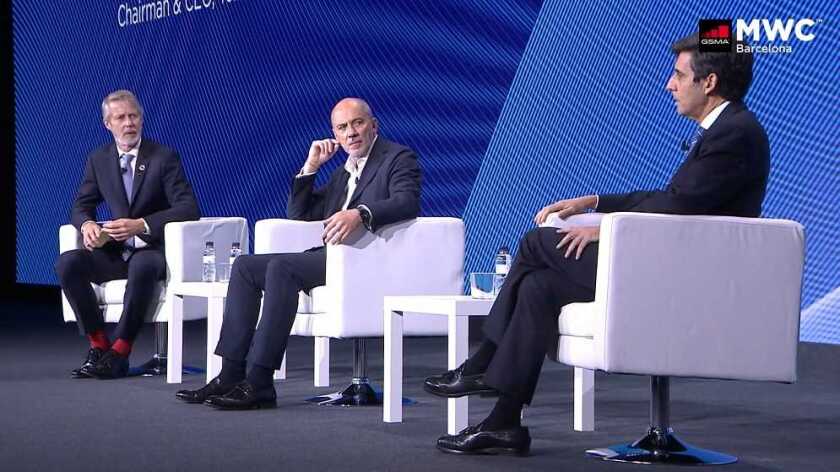First up was Telefónica chairman and CEO, José María Álvarez-Pallete López. In his opening address he spoke of the opportunities of edge computing, cloud, cybersecurity, the Internet of Things and big data, as well as the masses of data created by digitalisation now turned into insights by artificial intelligence, describing it as a “real revolution” but recognising the challenge that governments have is maximising this opportunity.
“Governments need to attract investment into smart digital infrastructure that will make all of this possible. The digital world has wiped away the old rules of the analogue world. We need new rules for this new world to react and to keep up with the opportunity.
“To grab it, Europe needs a sustainable tech sector, otherwise, we will lag farther behind in the global race for digital leadership. The time to kick the gameboard is now, we reclaim a new regulatory framework and competition rules to build a strong digital Europe.”
Echoing his sentiments, Timotheus Höttges CEO of Deutsche Telekom AG, reminded us that while the telco leaders of Europe must execute on their vision of a more connected world with “energy” and “inspiration”, to deliver the modern infrastructure and better coverage the continent requires, “I hope that political leaders think the same way”.
In a more contentious tirade, a visibly annoyed Höttges asked the crowd: “How can it be that WhatsApp is not treated as a communication service? How can it be that Microsoft is evolving their network, connecting their edge network with their fibre networks, providing connectivity to their customers and are not treated as a connectivity provider?”
“How can it be that 80% of the traffic is generated by over the top players and they're not even paying a cent for using the infrastructure and the build out costs, and getting in exchange all the value of the data of our consumers? Is this a fair equation?” he asked.
The response to his rhetorical question, is simple, Höttges believes that governments must “look at the chess field, and find a level playing field for our industries with the hyperscalers and the over the top players.”
Beyond this he said that Europe and the US need to come to together to iron out the discrepancies in its legislation and create environments that are more “innovation friendly”.
“We have to find regulation that enables our investment for what we see for the future, both in connectivity and software. We have to find ways that the exchange between the US and the European constituencies works legally in the same environment.”
During the final panel session and when asked about the European Commission’s target for connectivity with gigabit networks to all households in Europe, and 5G coverage for all populated areas by 2030, chairman of GSMA and chairman & CEO of Orange Group, Stéphane Richard. said that while he thinks its achievable, once again, the competition regulation and overall environment needs to be assessed.
“We have a vision; we have the technologies and we know how to do it. Now, If we are thinking in terms of regulation, in terms of competition and in terms of financing, there are some questions because all of EU households includes rural areas and everywhere in Europe.”
Reminding the crowd that, Europe is a varied and diverse place with its own set of geographic and environmental challenges, he says that this vision can’t be achieved without “some form of public financing”.
“But this will also call into question the framework of our sector which is based on competition by infrastructure, meaning that we are private industry, fit for business and when we invest, somewhere, we expect a return on our investment. Though respectable, this is political.”
As the conversation wages on, we left outspoken Höttges with the final word, in the hopes that that powers that be are listening.
“I think that the regulatory framework in Europe is totally outdated,” he said. “It needs a full review that needs to be aligned with this vision, because if you want this to happen, then you need to create the right environment, and I don't think that that environment is here today.






